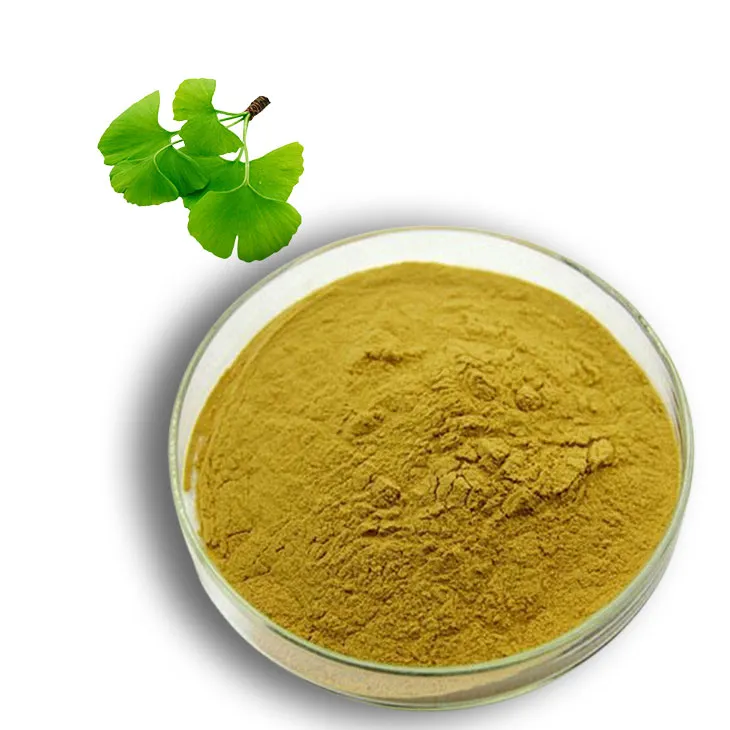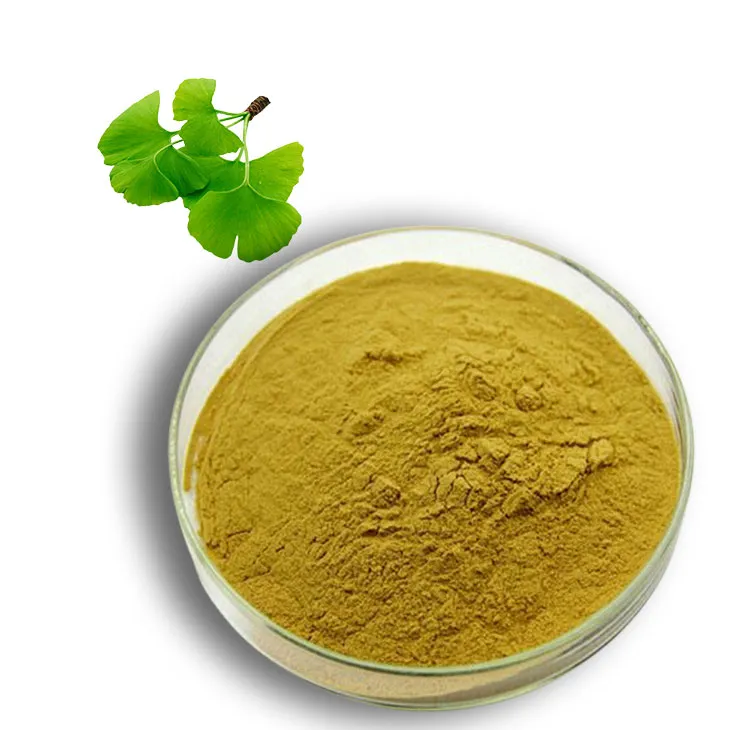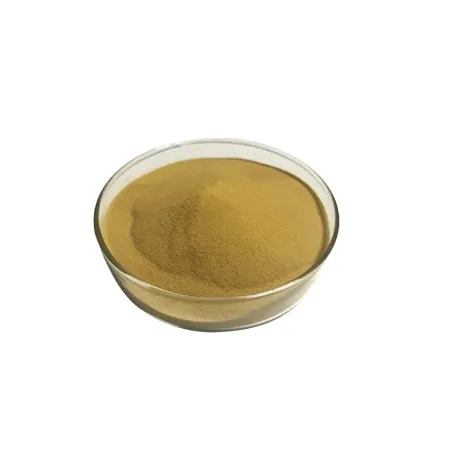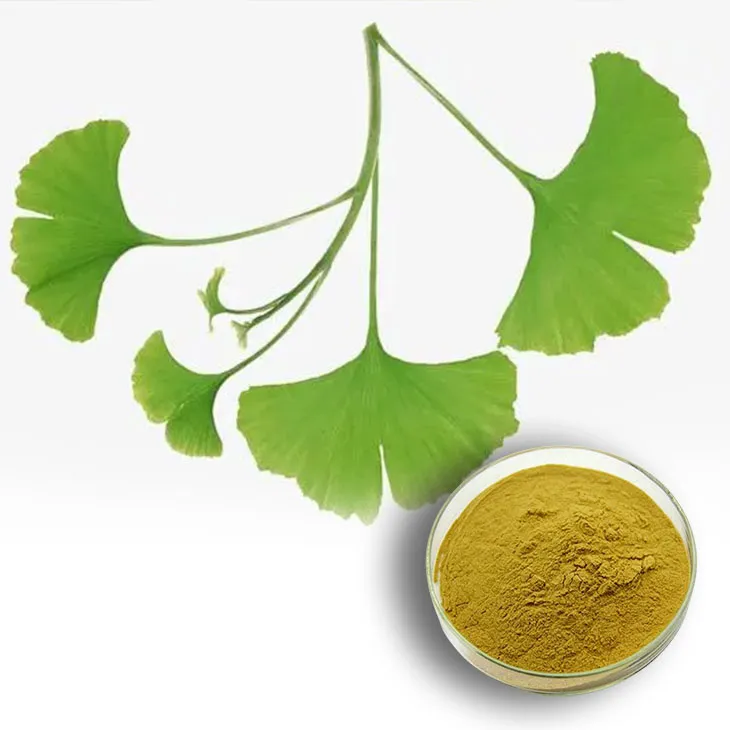- 0086-571-85302990
- sales@greenskybio.com
Chinese Ginkgo Biloba Extract Suppliers.
2024-11-28

Introduction to Ginkgo Biloba and its Significance
The Ginkgo biloba tree, often referred to as a "living fossil," has a long - standing presence on our planet. This remarkable tree is not only of great botanical interest but also holds substantial economic and medicinal value. Ginkgo biloba is rich in a variety of bioactive compounds, which have attracted the attention of the global health and pharmaceutical industries.
These bioactive compounds are associated with numerous potential health benefits. For example, they are believed to have antioxidant properties, which can help in combating oxidative stress in the body. Additionally, they may contribute to improved cognitive function, better blood circulation, and even potential anti - inflammatory effects. Given these qualities, the extraction of Ginkgo biloba compounds has become an important area of focus, especially in China, where the tree is widely cultivated.

Geographical Advantages of Chinese Suppliers
China, as one of the major producers of Ginkgo biloba extract, benefits from its vast geographical area. Chinese Ginkgo biloba extract suppliers are spread across different regions, each taking advantage of the local climate and soil conditions.
1. Suitable Climate
Some regions in China have a climate that is highly conducive to the growth of Ginkgo biloba trees. The temperate climate with distinct seasons provides the right amount of sunlight, temperature variations, and rainfall. For instance, in certain areas of Jiangsu and Shandong provinces, the climate is neither too cold in winter nor too hot in summer, allowing the Ginkgo biloba trees to thrive. This optimal climate results in healthy trees with a higher content of bioactive compounds, which is crucial for the production of high - quality extract.
2. Favorable Soil Conditions
The soil in some parts of China also plays a significant role. In areas like the Yangtze River Delta, the soil is rich in nutrients such as nitrogen, phosphorus, and potassium. These nutrients are essential for the growth and development of Ginkgo biloba trees. The fertile soil enables the trees to absorb the necessary elements, which are then translated into the production of valuable bioactive compounds. This, in turn, gives Chinese suppliers an edge in terms of raw material quality for Ginkgo biloba extract production.

Production Capabilities of Chinese Suppliers
Chinese Ginkgo biloba extract suppliers are known for their large - scale production capabilities. This is due to several factors:
1. Abundant Raw Material Supply
With extensive plantations of Ginkgo biloba trees across the country, there is a consistent and ample supply of raw materials. The large number of trees ensures that suppliers can meet the growing global demand for Ginkgo biloba extract. Moreover, the cultivation of Ginkgo biloba in China has a long history, and farmers have developed efficient cultivation techniques over time, further enhancing the quantity and quality of the raw materials available for extraction.
2. Advanced Extraction Technologies
Chinese suppliers have been investing in advanced extraction technologies. They use modern equipment and techniques to extract the bioactive compounds from Ginkgo biloba leaves or seeds. For example, supercritical fluid extraction is becoming increasingly popular among Chinese suppliers. This method allows for more precise extraction, resulting in a higher - quality extract with a greater concentration of the desired bioactive compounds. Additionally, advanced chromatography techniques are used for purification, ensuring that the final product meets the highest quality standards.

Environmental Protection and Sustainable Development
In today's global context, environmental protection and sustainable development are of utmost importance, and Chinese Ginkgo biloba extract suppliers are well aware of this. They are taking proactive measures in their extraction processes:
1. Sustainable Cultivation Practices
Suppliers encourage sustainable cultivation of Ginkgo biloba trees. This includes proper spacing between trees to ensure healthy growth, reducing the use of chemical fertilizers and pesticides, and promoting organic farming methods. By implementing these practices, they not only protect the environment but also enhance the quality of the raw materials. For example, organic Ginkgo biloba leaves are free from harmful chemical residues, which is beneficial for the production of pure and safe extract.
2. Waste Management
During the extraction process, waste management is carefully addressed. The by - products of extraction, such as leftover plant materials, are being recycled or reused in an environmentally friendly way. Some suppliers are exploring ways to convert these waste materials into useful products, such as bio - fertilizers or animal feed. This not only reduces waste but also adds an extra economic dimension to the extraction process.

Quality Assurance by Chinese Suppliers
Quality is a top priority for Chinese Ginkgo biloba extract suppliers. They employ a range of measures to ensure the purity, potency, and safety of their products:
1. Modern Analytical Techniques
Suppliers use state - of - the - art analytical techniques to test their products. High - performance liquid chromatography (HPLC) is commonly used to determine the purity of the extract, identifying the presence and quantity of different bioactive compounds. Mass spectrometry is also employed to analyze the molecular structure of the compounds, ensuring that the extract contains the desired substances. These techniques enable suppliers to closely monitor the quality of their products at every stage of production.
2. Compliance with International Standards
Chinese suppliers are increasingly complying with international quality standards. They understand that in order to be competitive in the global market, their products must meet the strict requirements of different countries. For example, they adhere to the Good Manufacturing Practice (GMP) standards, which ensure that the production process is carried out in a clean, controlled, and quality - assured environment. Additionally, they are also working towards meeting the standards set by regulatory bodies in the United States, Europe, and other major markets.
International Collaboration of Chinese Suppliers
Chinese Ginkgo biloba extract suppliers are actively involved in international collaboration, which has a significant impact on their business:
1. Research Collaboration
They collaborate with international research institutions and universities. These collaborations focus on further exploring the potential health benefits of Ginkgo biloba extract, as well as improving the extraction and purification techniques. For example, a Chinese supplier may partner with a European research institute to study the effects of Ginkgo biloba extract on neurodegenerative diseases. Through such collaborations, new knowledge is generated, and the scientific understanding of Ginkgo biloba is enhanced.
2. Marketing Collaboration
Chinese suppliers also collaborate with international marketing partners. These partners help in promoting Chinese - sourced Ginkgo biloba extract in global markets. They have a better understanding of the local market demands, consumer preferences, and regulatory requirements in different countries. By working together, Chinese suppliers can effectively target international markets, increasing their market share and brand recognition.
3. Quality Standard - Setting Collaboration
Collaboration in setting quality standards is another important aspect. Chinese suppliers work with international partners to develop unified quality standards for Ginkgo biloba extract. This helps to ensure that the products are of consistent quality across different markets. It also reduces trade barriers and promotes fair competition in the international market.
Conclusion
Chinese Ginkgo biloba extract suppliers are playing an increasingly important role in the international market. Their geographical advantages, large - scale production capabilities, focus on environmental protection and sustainable development, quality assurance measures, and international collaborations all contribute to their success. As the global demand for natural health products continues to grow, Chinese suppliers are well - positioned to meet this demand and further enhance the reputation of Chinese - sourced Ginkgo biloba extract worldwide.
FAQ:
1. What are the main regions in China where Ginkgo biloba extract suppliers are located?
Many Ginkgo biloba extract suppliers in China are located in areas with suitable climate and soil for Ginkgo biloba growth. For example, some regions in the Yangtze River Delta and parts of Central China are known for their Ginkgo biloba cultivation and related extract production.
2. How do Chinese Ginkgo biloba extract suppliers ensure product quality?
They use modern analytical techniques to test the purity, potency, and safety of their products. This includes methods such as high - performance liquid chromatography (HPLC) to accurately measure the levels of bioactive compounds in the extract. They also follow strict quality control procedures at every stage of the extraction process, from raw material collection to final product packaging.
3. What bioactive compounds are typically found in Ginkgo biloba extract?
Ginkgo biloba extract is rich in flavonoids and terpenoids. Flavonoids, such as Quercetin, kaempferol, and isorhamnetin, have antioxidant properties. Terpenoids, including ginkgolides and bilobalide, are believed to have various effects on the body, such as improving blood circulation and protecting nerve cells.
4. How do Chinese Ginkgo biloba extract suppliers contribute to sustainable development?
During the extraction process, they focus on environmental protection. This may include measures such as proper waste management, efficient use of water and energy resources, and sustainable harvesting of Ginkgo biloba. For example, they may ensure that the harvesting of Ginkgo biloba leaves does not damage the trees or the surrounding ecosystem, and they may also invest in renewable energy sources for their production facilities.
5. Why do Chinese Ginkgo biloba extract suppliers collaborate with international partners?
Collaboration with international partners in areas like research, marketing, and quality standard - setting helps Chinese suppliers enhance their competitiveness. In research, they can access new knowledge and technologies. In marketing, they can expand their global market reach. And by participating in quality standard - setting, they can ensure that their products meet international requirements, which in turn helps to improve the global reputation of Chinese - sourced Ginkgo biloba extract.
Related literature
- Analysis of Bioactive Compounds in Ginkgo biloba Extract: A Review"
- "Sustainable Production of Ginkgo biloba Extract in China: Current Practices and Future Perspectives"
- "Quality Assurance in Ginkgo biloba Extract Manufacturing: International Standards and Chinese Approaches"
- ▶ Hesperidin
- ▶ Citrus Bioflavonoids
- ▶ Plant Extract
- ▶ lycopene
- ▶ Diosmin
- ▶ Grape seed extract
- ▶ Sea buckthorn Juice Powder
- ▶ Fruit Juice Powder
- ▶ Hops Extract
- ▶ Artichoke Extract
- ▶ Mushroom extract
- ▶ Astaxanthin
- ▶ Green Tea Extract
- ▶ Curcumin
- ▶ Horse Chestnut Extract
- ▶ Other Product
- ▶ Boswellia Serrata Extract
- ▶ Resveratrol
- ▶ Marigold Extract
- ▶ Grape Leaf Extract
- ▶ New Product
- ▶ Aminolevulinic acid
- ▶ Cranberry Extract
- ▶ Red Yeast Rice
- ▶ Red Wine Extract
-
Fig Extract
2024-11-28
-
Tongkat Ali Extract
2024-11-28
-
Europen Bilberry Extract
2024-11-28
-
Agaricus Blazei Extract
2024-11-28
-
Cactus Extract
2024-11-28
-
Panax Ginseng Leaf Extract
2024-11-28
-
Elderberry Extract
2024-11-28
-
Cassia Seed Extract
2024-11-28
-
Sophora Flavescens Root Extract
2024-11-28
-
Buckthorn bark extract
2024-11-28





















